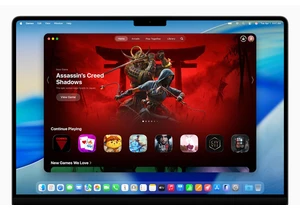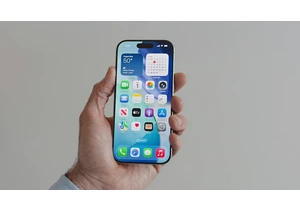At WWDC 2024, Apple failed its customers. When the company announced the new, more personal Siri last year, it showed a product that was nowhere near ready. You can point to many different places where Apple Intelligence failed to meet expectations, but with WWDC 2025 fast approaching, the company owes its users an explanation of how it intends to win back their trust.
If you didn't watch last year's conference, here's a recap. At the heart of Apple’s promise of a better digital assistant was App Intents, a feature that would give Siri the ability to understand all the personal information stored on your iPhone. During the presentation's most memorable moment, Apple demoed Siri responding to a request from Kelsey Peterson, the company’s director of machine learning and AI, for an update on her mom’s flight. The assistant not only understood the prompt, but provided real-time flight tracking information in the process.
In short, the demo promised – after years of neglect – that Siri would finally be useful.
It should have been obvious in hindsight that Apple was overselling its progress on Siri, and AI more broadly. At WWDC 2024, the company did not let press and other attendees try the new version of the assistant. There wasn't even an opportunity to watch the company's employees use Siri. In fact, according to reporting The Information later published, it’s probably more accurate to describe what Apple showed last June not as a demo but as an elaborate concept video.
If Apple had only faked the WWDC demo, that would have been bad enough, but the company did something worse. As you may recall, the tech giant began rolling out Apple Intelligence features piecemeal in September. Rather than a public statement explaining the lack of progress, the company only admitted it was delaying the upgrade to sometime "in the coming year" after Daring Fireball's John Gruber sought answers. That same day, as if the company had only just realized its error, Apple pulled a TV commercial that showed The Last of Us star Bella Ramsey using the new Siri in the way it had demoed at WWDC 2024.
It’s going to take a lot for Apple to fix Apple Intelligence, but the best place the company can start is by being honest with its customers. Corporations, especially ones as big as Apple, rarely show humility, but in this case, an acknowledgement from the company that it promised the moon and missed the mark would go a long way towards righting some of the sins of WWDC 2024.
This applies to other aspects of Apple Intelligence just as much as it does with Siri. Look at the damage notification summaries did to Apple’s reputation. Apple Intelligence was so bad at aggregating the news, the company ended up pausing the notifications in the iOS 18.3 beta. When it released 18.3 to the public a couple of weeks later, it began labeling the alerts to give users a warning they may include errors.
As for other Apple Intelligence features like Image Playground and Genmoji, they’re forgettable because they offer little utility and see Apple following trends rather than offering something that truly enhances the usefulness of its devices. There too the company can tell its users it missed the mark and it plans to do better.
There’s no reason Apple can’t make Apple Intelligence great, but any effort to do so has to start with the company being honest: about what its roadmap of features can actually do, and to own up to when its promises can't be fulfilled.
This article originally appeared on Engadget at https://www.engadget.com/ai/to-fix-apple-intelligence-apple-needs-to-be-honest-about-its-capabilities-130046256.html?src=rss https://www.engadget.com/ai/to-fix-apple-intelligence-apple-needs-to-be-honest-about-its-capabilities-130046256.html?src=rssJelentkezéshez jelentkezzen be







